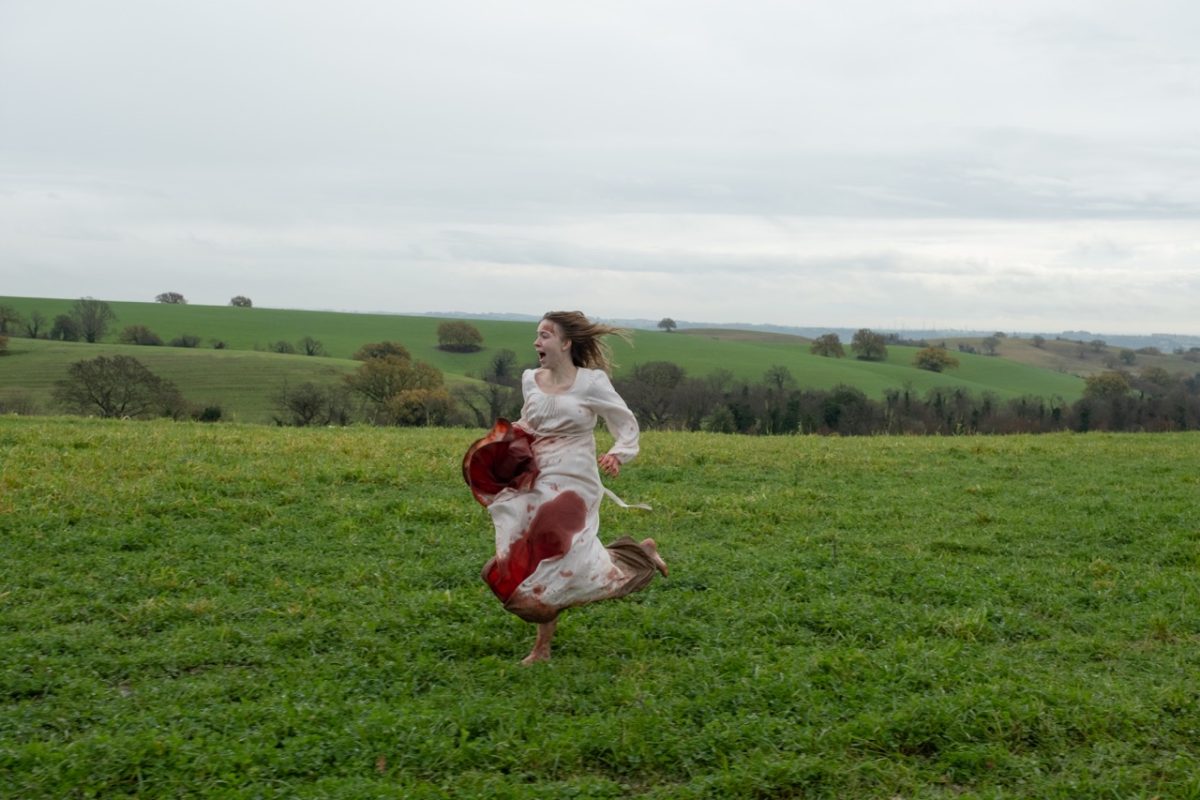With the horror bar set lower than the depths of hell, Michael Mohan’s and Sydney Sweeney’s newest project, “Immaculate,” is at least well-paced, gripping and not entirely dull — more than most recent attempts at the genre can say. The film can certainly be a fun watch, if you allow yourself to be swept up in its creepy atmosphere and unhinged moments. Still, it did not quite live up to its title.
The film opens with a mystery — the first of many horror tropes that “Immaculate” employs. The initial victim, Sister Mary (Simona Tabasco) tries in vain to flee from the convent and is mysteriously buried alive. We are then introduced to Sister Cecilia (Sydney Sweeney), the unknowing, starry-eyed American nun who has just moved to the Italian countryside to start a new chapter of her life. It becomes apparent that her new home is teeming with secret horrors around every corner. Sister Cecilia immaculately conceives, and the rest of the film traces the gruesome results.
Sweeney’s performance shines when the plot threatens to lose the audience’s attention. “Immaculate” pushes Sweeney to her most unhinged performance yet, cementing her versatility as an actress. While Sweeney can undoubtedly pull off the Gen Z rich girl of Olivia Mossbacher in “The White Lotus” and the struggling, quirky law student in her recent rom-com “Anyone But You,” her best performances are when she gets to tap into the unhinged — such as with Cassie in “Euphoria,” Pippa in “The Voyeurs.” Her horrified eyes and ear-splitting screams in “Immaculate” truly grip the audience.
Mohan succeeds in making audiences squirm with queasiness and unease. He cited American New Wave films like “Rosemary’s Baby” and “Don’t Look Now” as inspirations for the film, attempting to create the boldest horror film possible. “Immaculate” creates a dreadful atmosphere through its washed-out color palette, eerie string score and gory visuals.
The first half of “Immaculate” doesn’t lean fully into either the serious or the silly, instead being a confused mix of the two. There are moments of wry humor and light dialogue littered throughout an otherwise sober, eerie first act. The film’s second half, or Sister Cecilia’s second trimester, is where the plot takes off and the tone finds itself. It shifts into the film’s campy, absurd and often unserious tone. These jarring tonal shifts take the audience out of the story, leaving them uninterested in the plot or in Sister Cecilia’s fate.
Rather than initially attempting serious art house horror, “Immaculate” would’ve been better off leaning into its absurd campiness right off the bat. The final act finds its footing in the delicate balance between humor and horror, and Sweeney’s Gen Z valley girl quips ironically juxtapose the events taking place.
“Immaculate” is an obvious, arguably lazy, critique of the higher standards that women are held to in religion and society. “Blessed are the meek, for they will inherit the earth,” is a recurring biblical verse in the film — implying God rewards women who are meek, submissive and suffering in Catholicism.
Suppose fans of recent high-brow horror like “Midsommar” and “Hereditary” can let go of the need for a horror film to have a distinct, strong message. In that case, they can enjoy “Immaculate” for what it is. These shocking, stomach-churning moments foster a collective experience of moans and groans — a movie-going moment that horror films haven’t seen in a long time.
Contact Lulu Chatterjee at [email protected].


























































































































































